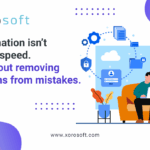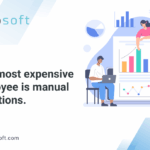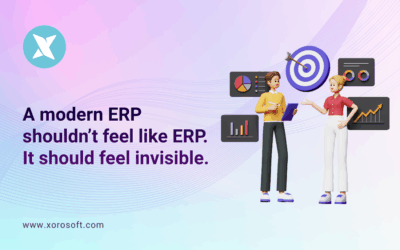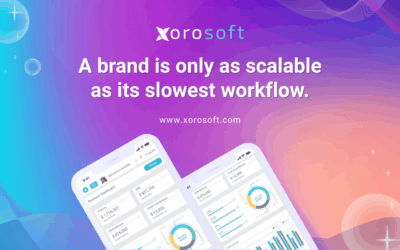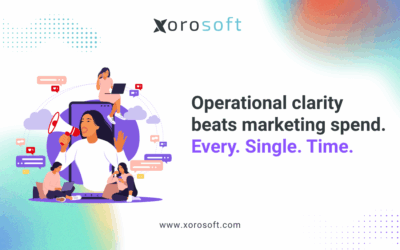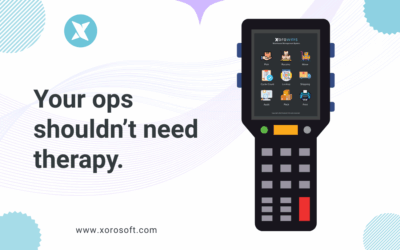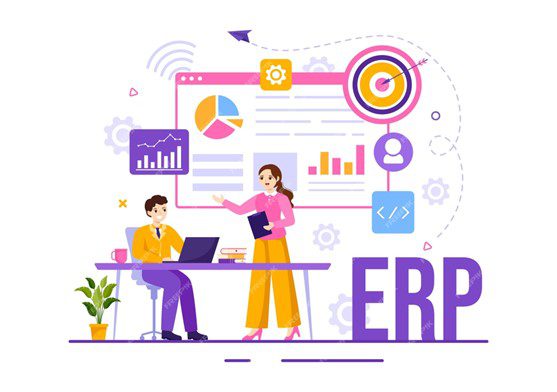
Introduction to ERP System
As the world becomes increasingly digital, businesses are turning to e-commerce as a means to increase sales and reach a broader audience. However, with online orders come the need for efficient inventory management, and accounting systems that can keep up with the pace of transactions. This is where an ERP system comes in as a solution to streamline these processes. In this article, I will explore how an ERP system can enhance efficiency in e-commerce, specifically focusing on its impact on inventory management and accounting processes.
An ERP (Enterprise Resource Planning) system is a software solution that integrates all aspects of a business’s operations, from accounting to inventory management, into a single, unified system. This means that instead of using separate applications for each process, businesses can use one system to manage all their operations. ERP systems are designed to provide a centralized platform where businesses can manage their resources effectively and efficiently.
What is an ERP system?
An ERP system is a software application that helps businesses manage their resources, such as finances, inventory, and customer data. It is designed to provide a centralized platform where businesses can manage all their operations from one place. ERP systems help businesses streamline their processes and improve efficiency by automating tasks and providing real-time data that can be used to make informed decisions.
Benefits of using an ERP system for e-commerce integration
There are several benefits to using an ERP system for e-commerce integration. First, it helps businesses manage their inventory more efficiently. With an ERP system in place, businesses can track inventory levels in real-time, which means they can quickly replenish stock when necessary. This helps prevent stockouts and ensures that customers can always find what they need.
Second, an ERP system can automate accounting processes, such as invoicing and billing. This saves businesses time and reduces the risk of errors. By automating these processes, businesses can focus on other areas of their operations, such as customer service and marketing.
Finally, an ERP system can help businesses make data-driven decisions. By providing real-time data on inventory levels, sales, and customer behavior, businesses can make informed decisions about pricing, promotions, and product development. This can help businesses increase sales and improve customer satisfaction.
How an ERP system enhances efficiency in e-commerce
An ERP system enhances efficiency in e-commerce by streamlining inventory management and automating accounting processes. With an ERP system in place, businesses can track inventory levels in real-time, which means they can quickly replenish stock when necessary. This helps prevent stockouts and ensures that customers can always find what they need.
In addition, an ERP system can automate accounting processes, such as invoicing and billing. This saves businesses time and reduces the risk of errors. By automating these processes, businesses can focus on other areas of their operations, such as customer service and marketing.
Finally, an ERP system can help businesses make data-driven decisions. By providing real-time data on inventory levels, sales, and customer behavior, businesses can make informed decisions about pricing, promotions, and product development. This can help businesses increase sales and improve customer satisfaction.
Streamlining inventory management with an ERP system
Inventory management is a critical aspect of e-commerce. With an ERP system in place, businesses can track inventory levels in real-time, which means they can quickly replenish stock when necessary. This helps prevent stockouts and ensures that customers can always find what they need.
An ERP system can also help businesses optimize their inventory levels. By providing real-time data on inventory levels and sales, businesses can identify which products are selling well and which are not. This can help businesses make informed decisions about which products to stock and how much to order.
Finally, an ERP system can help businesses manage their supply chain more effectively. By providing real-time data on inventory levels and order volumes, businesses can work with suppliers to ensure that they have the products they need when they need them. This can help reduce lead times and improve overall efficiency.
Automating accounting processes with an ERP system
Accounting is another critical aspect of e-commerce. An ERP system can automate accounting processes, such as invoicing and billing. This saves businesses time and reduces the risk of errors. By automating these processes, businesses can focus on other areas of their operations, such as customer service and marketing.
An ERP system can also help businesses manage their cash flow more effectively. By providing real-time data on sales and expenses, businesses can make informed decisions about when to pay bills and when to invest in growth opportunities. This can help businesses manage their finances more effectively and reduce the risk of cash flow problems.
Finally, an ERP system can help businesses manage their taxes more effectively. By automating tax calculations and providing real-time data on sales and expenses, businesses can ensure that they are compliant with tax regulations and avoid costly fines.
Case study: Xorosoft ERP – a leading solution for e-commerce integration
Xorosoft ERP is a leading ERP solution for e-commerce integration. It is designed to provide businesses with a centralized platform where they can manage all their operations from one place. Xorosoft ERP offers a range of features and functionalities that can help businesses streamline their processes and improve efficiency.
Key features and functionalities of Xorosoft ERP
Xorosoft ERP offers a range of features and functionalities that can help businesses streamline their processes and improve efficiency. These include real-time inventory management, automated accounting processes, and data analytics.
Real-time inventory management allows businesses to track inventory levels in real-time, which means they can quickly replenish stock when necessary. This helps prevent stockouts and ensures that customers can always find what they need.
Automated accounting processes, such as invoicing and billing, save businesses time and reduce the risk of errors. By automating these processes, businesses can focus on other areas of their operations, such as customer service and marketing.
Data analytics provide businesses with real-time data on inventory levels, sales, and customer behavior. This can help businesses make informed decisions about pricing, promotions, and product development.
Implementing an ERP system in your e-commerce business
Implementing an ERP system in your e-commerce business can be a significant investment. However, the benefits of using an ERP system for e-commerce integration are numerous.
When implementing an ERP system in your e-commerce business, it is essential to choose the right solution. Consider factors such as your business size, industry, and budget when selecting an ERP system.
It is also essential to have a clear implementation plan in place. This should include a timeline for implementation, a list of tasks and responsibilities, and a plan for training employees on how to use the system.
Choosing the right ERP solution for your e-commerce business
When choosing the right ERP solution for your e-commerce business, there are several factors to consider. First, consider your business size and industry. Some ERP solutions are better suited for small businesses, while others are designed for larger enterprises.
Second, consider your budget. ERP solutions can range in price from a few thousand dollars to millions of dollars. Determine how much you can afford to invest in an ERP system before making a decision.
Finally, consider the features and functionalities offered by the ERP solution. Look for a system that offers real-time inventory management, automated accounting processes, and data analytics.
Conclusion: The impact of an ERP system on e-commerce efficiency and sales
In conclusion, an ERP system can have a significant impact on e-commerce efficiency and sales. By streamlining inventory management and automating accounting processes, businesses can save time and reduce the risk of errors.
Xorosoft ERP is a leading solution for e-commerce integration, offering a range of features and functionalities that can help businesses streamline their operations and improve efficiency.
When implementing an ERP system in your e-commerce business, it is essential to choose the right solution and have a clear implementation plan in place. With the right ERP system in place, businesses can make data-driven decisions, improve customer satisfaction, and increase sales.
To see how Xorosoft ERP can benefit your e-commerce business, book a demo today.



